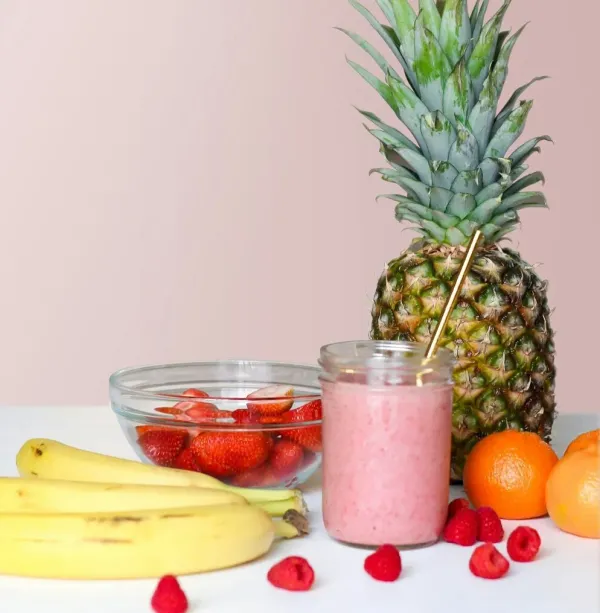Calorie of Food Charts: how many calories in a food?

Understanding Calories and Nutrition
What are calories and why are they important?
Calories are a measure of the energy that food provides to our bodies. When we eat, the calories from food are converted into energy, which is used to power everything from basic bodily functions like breathing and circulating blood to more active tasks like walking or exercising. Understanding calorie content is essential for managing your diet and maintaining a healthy weight.
Knowing how many calories you consume helps you make informed choices about what to eat, ensuring that your meals provide the right amount of energy without contributing to unwanted weight gain. Whether your goal is to lose weight, gain weight, or maintain your current weight, calories play a crucial role in balancing your diet. By planning your meals around your caloric needs, you can support a healthy lifestyle and achieve your weight management goals.
Calorie Chart Database
A calorie chart is an essential tool for anyone looking to manage their diet and health. By reviewing nutrition labels and using a calorie chart, you can track your daily calorie intake, making meal planning easier. This chart helps you find the caloric content of various foods, including fruits, vegetables, grains, and proteins. With this information, you can make better food choices, ensuring that your meals are both nutritious and aligned with your dietary goals.
How to use the calorie chart
Begin by reviewing the comprehensive nutrition facts available on the Foodintake calories and nutrition facts free database. This website provides detailed information about the calorie content of various foods along with vitamins and mineral helping you understand how much energy each serving will provide.
Below you will find tables that list the calorie content of common foods. These charts are categorised by food types, such as fruits, vegetables, proteins, and grains, making it easy to find what you need.
Food Categories and Calorie Counts
Fruits and Vegetables calorie chart
Fruits and vegetables are packed with essential vitamins and minerals while being low in calories. These nutrient-dense foods are high in fiber, which helps you feel full longer, making them a key part of any balanced diet. By including a variety of fruits and vegetables in your meals, you can enjoy eating while supporting your weight loss or weight maintenance efforts.
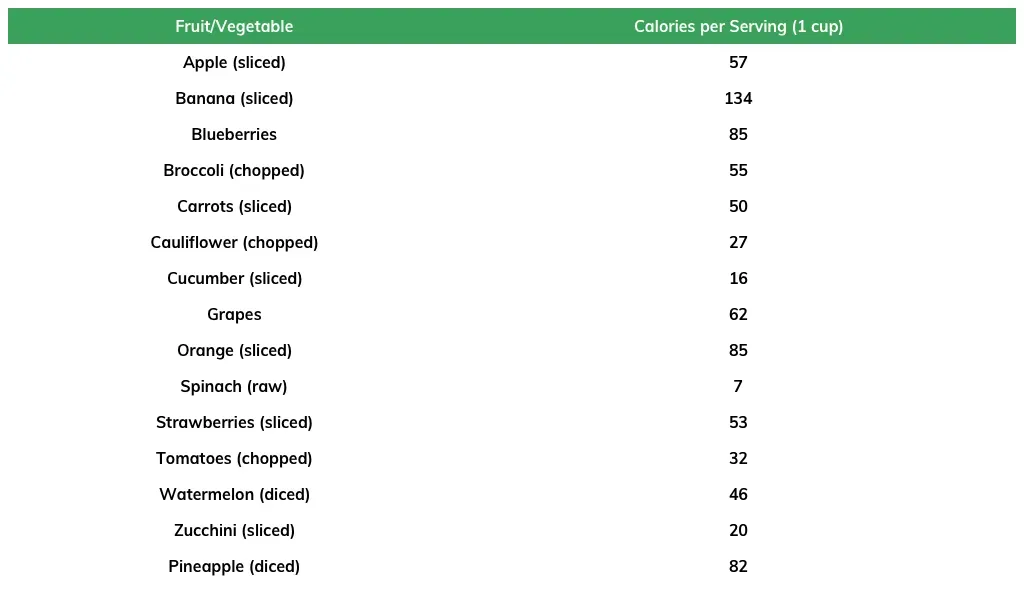
Proteins and Meats calorie chart
Proteins and meats are critical for muscle growth and repair. However, they can be high in calories, so it’s important to consume them in moderation. Lean protein sources like chicken and fish are excellent choices for a healthy diet. The calorie chart can guide you in choosing the right portion sizes and types of meat to meet your protein needs without over-consuming calories.
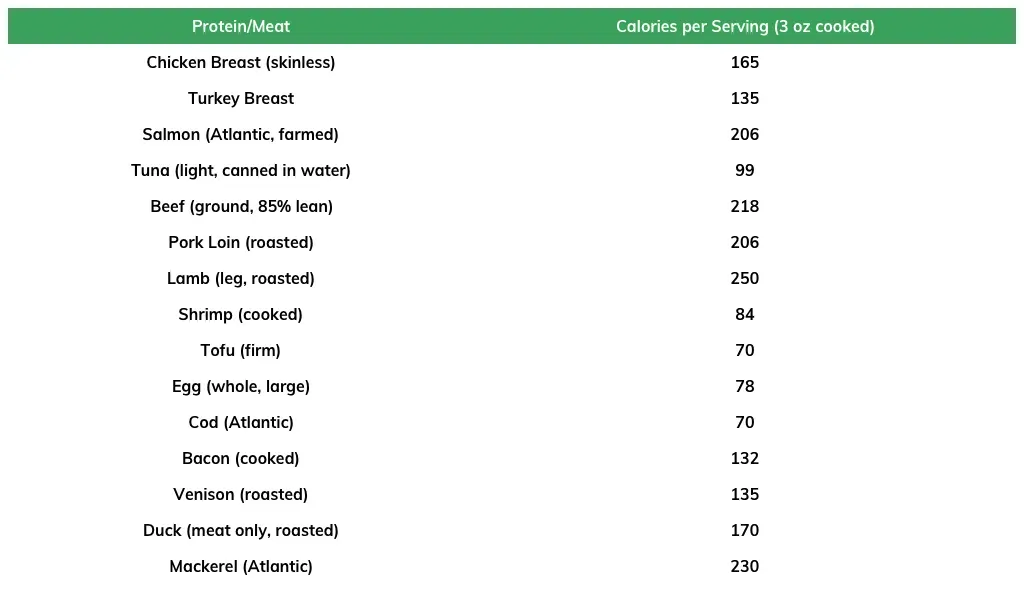
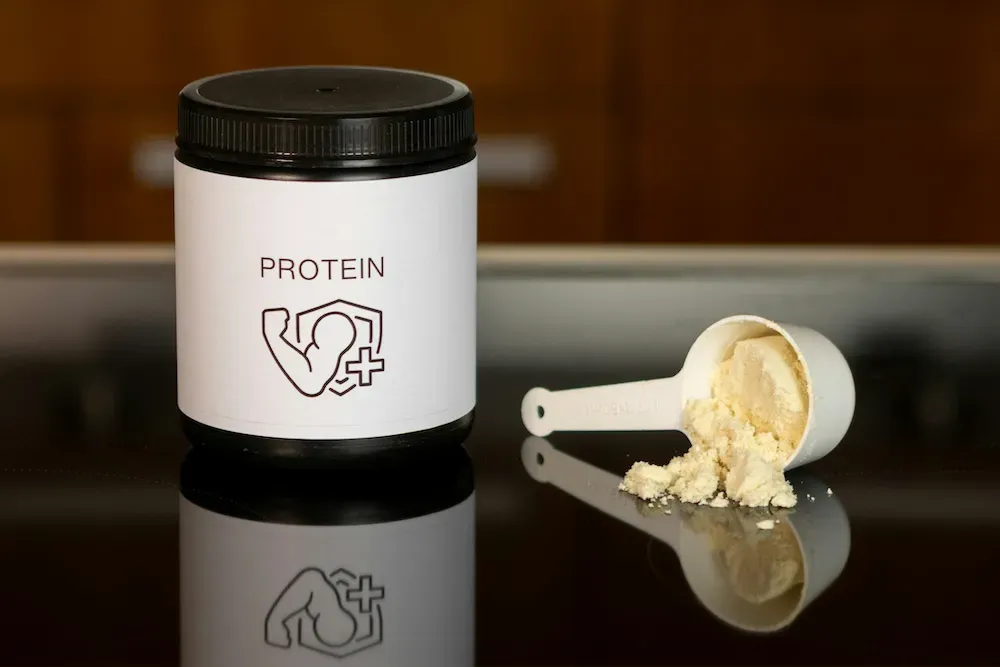
Grains and Starches calorie chart
Grains and starches, such as rice, whole wheat bread, and potatoes, are rich in complex carbohydrates that provide sustained energy. While they are an essential part of a balanced diet, they can also be high in calories. Whole grains are a better choice than refined grains because they are higher in fiber and other nutrients, which aid in digestion and help maintain stable energy levels.
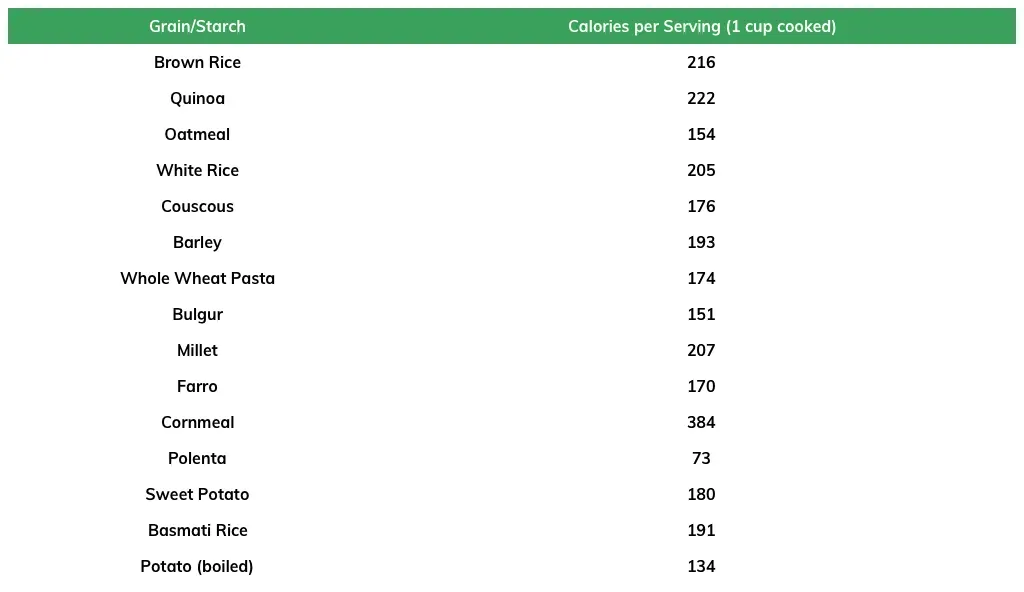
Dairy and Eggs calorie chart
Dairy products like milk, cheese, and yogurt, along with eggs, are rich in calcium and protein. These foods can be higher in calories, especially whole milk and full-fat dairy products. Choosing low-fat or fat-free dairy options can help you manage your calorie intake while still getting the necessary nutrients.
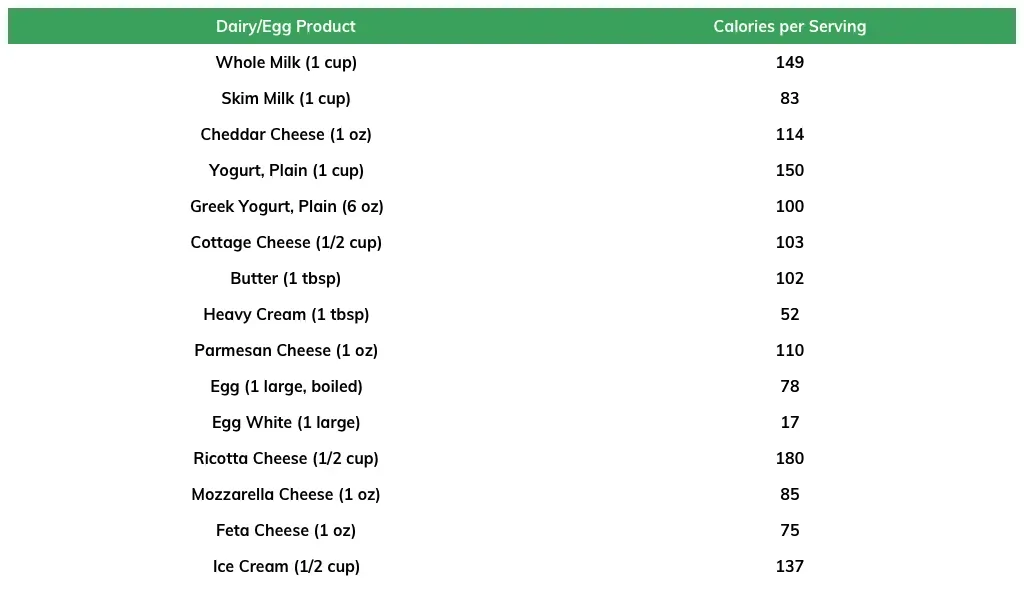
Healthy Fats and Oils calorie chart
Healthy fats and oils, such as those found in avocados, nuts, and olive oil, are essential for heart health and brain function. While these foods are high in calories, they are also important for a balanced diet. Consuming these fats in moderation can help you maintain your overall health without contributing to weight gain.
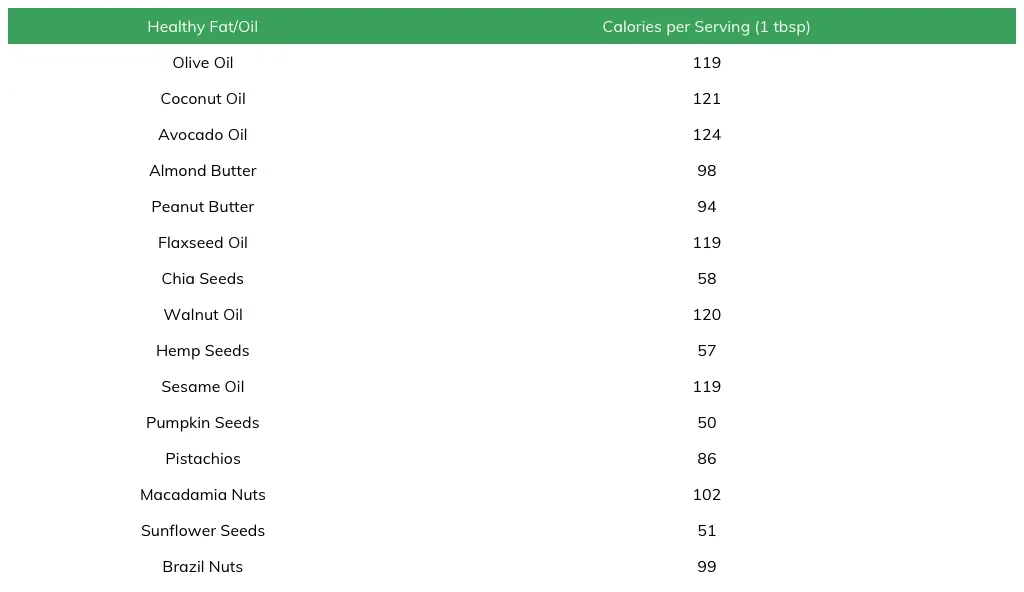
Beverages and Snacks calorie chart
Beverages and snacks often contain hidden calories, especially sugary drinks and processed snacks. Opt for water, unsweetened teas, and snacks like fresh fruits and nuts to keep your calorie intake in check. Understanding the calorie content of these items can help you make smarter choices and avoid empty calories that provide little nutritional value.
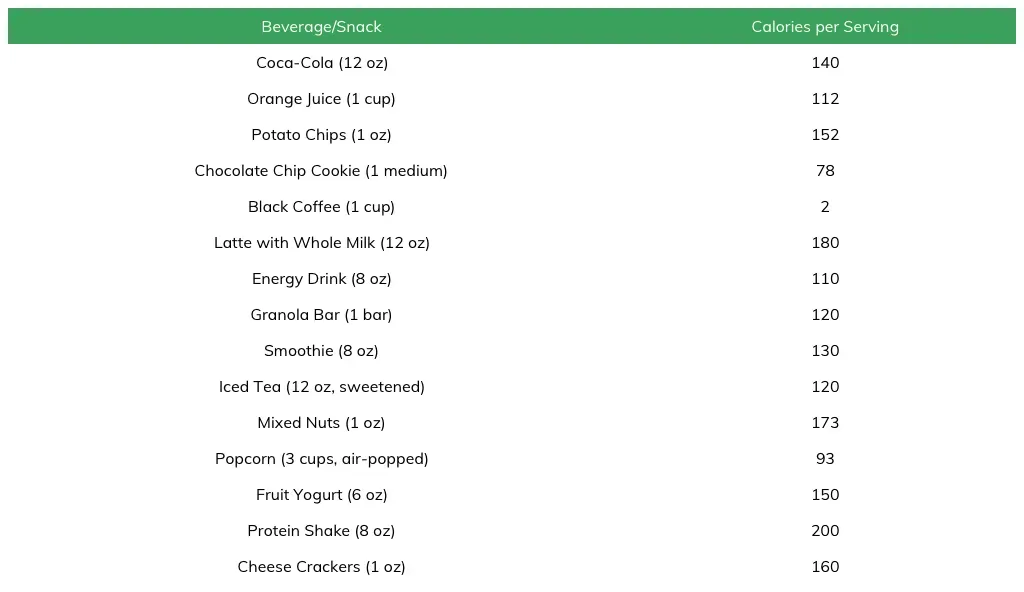
Checkout some of our articles about the topics in detail:



How Many Calories Should You Eat?
The number of calories you need daily depends on factors such as age, sex, weight, and activity level. On average, women should consume around 2,000 calories per day, while men should consume around 2,500. However, these numbers can vary, so it’s important to consult a healthcare professional to determine the right caloric intake for your specific needs.
The article below will help you calculate your TDEE (Total Daily Energy Expenditure) and acceptable macronutrient distribution ranges:
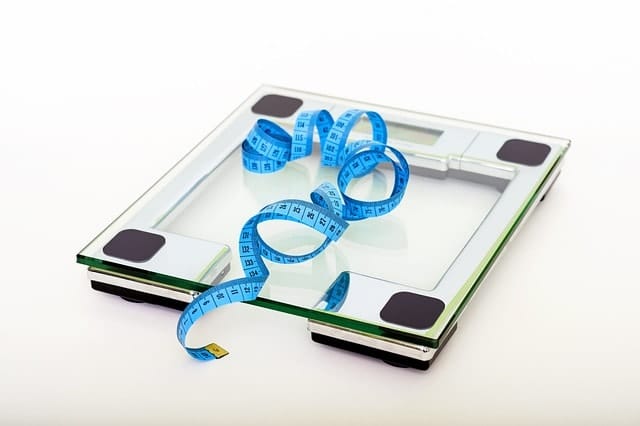
Eating Fewer Calories for Weight Loss
To achieve weight loss, it’s essential to consume fewer calories than your body expends. This can be achieved by choosing low-calorie, nutrient-dense foods that keep you full without adding extra calories. The calorie chart can help you identify such foods and plan your meals to support your weight loss goals.

Meal Planning and Recipes
Meal planning is a powerful tool for maintaining control over your calorie intake. By using the calorie chart to select healthy ingredients and recipes, you can create meals that are both delicious and aligned with your dietary needs. Cooking at home allows you to monitor exactly what goes into your meals, helping you avoid hidden calories and unhealthy additives.

Special Diets and Considerations
For those following special diets, such as vegan or gluten-free, careful meal planning is essential. The calorie chart can assist in finding suitable foods that meet your dietary restrictions while ensuring you get all the necessary nutrients. Always consult with a healthcare professional or registered dietitian for personalized advice, especially if you have food allergies or intolerances.
Final words
A calorie chart is a valuable tool for anyone looking to eat healthily and manage their weight. By understanding calorie content and nutrition facts, you can make informed food choices that support your overall health. Whether you aim to lose weight, maintain your current weight, or simply enjoy a balanced diet, keeping track of your calories is essential. Remember, a healthy lifestyle is built on a foundation of balanced nutrition, and calories are a key part of that equation.
FAQ: How do I calculate calories in food?
You can calculate the calories in food by using the calorie calculator. This tool allows you to input ingredients or food items, and it will automatically provide the calorie content. You can also refer to nutrition labels or use the FoodIntake calorie counter mobile app for detailed calorie information.
FAQ: What is the best website for food calories?
Nutrition facts and calories database from FoodIntake is one of the best websites for accessing comprehensive calorie information for various foods. It provides detailed nutrition facts and allows users to easily search for calorie content.
FAQ: Is there a free calorie counter online?
Yes, FoodIntake app offers a free online calorie counter. You can use the website or the mobile app to track your daily calorie intake and monitor your nutritional goals.
FAQ: How many calories are in each food?
To find out how many calories are in specific foods, you can visit the FoodIntake Calorie of food page. This resource provides calorie counts for a wide range of foods, from fruits and vegetables to proteins and grains.
FAQ: What foods are high in calories?
Foods that are high in calories include items like nuts, seeds, oils, and certain meats. To see a complete list of high-calorie foods, visit the FoodIntake Calorie of food page.
FAQ: How do I calculate calories in food I eat?
You can calculate the calories in the food you eat by entering the ingredients or meals into the FoodIntake calorie counter mobile app or FoodIntake calories in foods free online database. The tool will provide you with the total calorie count based on the portion sizes and ingredients.
FAQ: How many calories in food is healthy?
The number of calories considered healthy varies depending on your age, weight, and activity level. Generally, women should consume around 2,000 calories per day and men around 2,500. You can use the FoodIntake calorie calculator to tailor these recommendations to your specific needs.
FAQ: How many calories are in each food?
To find out the calorie content of each food, you can refer to the FoodIntake Calories and Nutrition facts online database. This comprehensive database includes detailed calorie information for a wide variety of foods.
FAQ: What calories should I eat to lose weight?
To lose weight, you need to consume fewer calories than your body burns. You can calculate your daily calorie needs and plan your meals accordingly using the FoodIntake tools, which provide personalized calorie recommendations.
FAQ: How do you count calories in every food you eat?
You can count calories in every food you eat by tracking your meals using the FoodIntake mobile app or FoodIntake calories nutrition facts labels website. Simply input the foods and portion sizes, and the tool will calculate the total calories for you.
FAQ: What foods should you avoid when counting calories?
When counting calories, it’s best to avoid or limit foods high in added sugars, unhealthy fats, and empty calories, such as sugary drinks, fried foods, and processed snacks. The articles below should help you understand more about the topic:
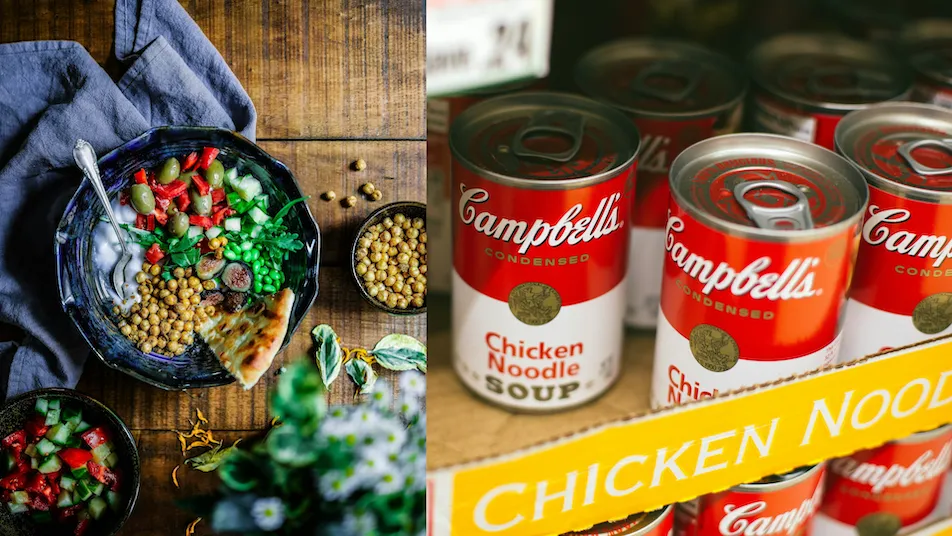



FAQ: How to find out how many calories are in food?
To find out how many calories are in food, visit the FoodIntake online database of calories in foods or use the mobile app. These tools allow you to search for foods and view their calorie content.
FAQ: How many calories of food should I eat to lose weight?
The number of calories you need to consume for weight loss depends on factors such as your age, current weight, and level of physical activity. You can calculate your target calorie intake using the FoodIntake calorie calculator:

FAQ: How to know how many calories are in food?
You can know how many calories are in food by using the tools available on the FoodIntake calories database or the FoodIntake mobile app. These resources provide accurate and up-to-date calorie information for a wide range of foods.







